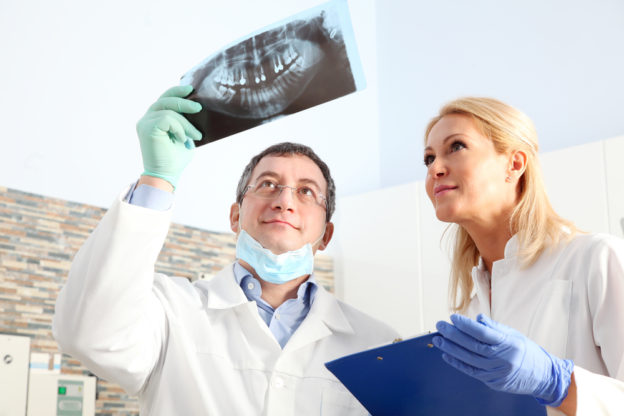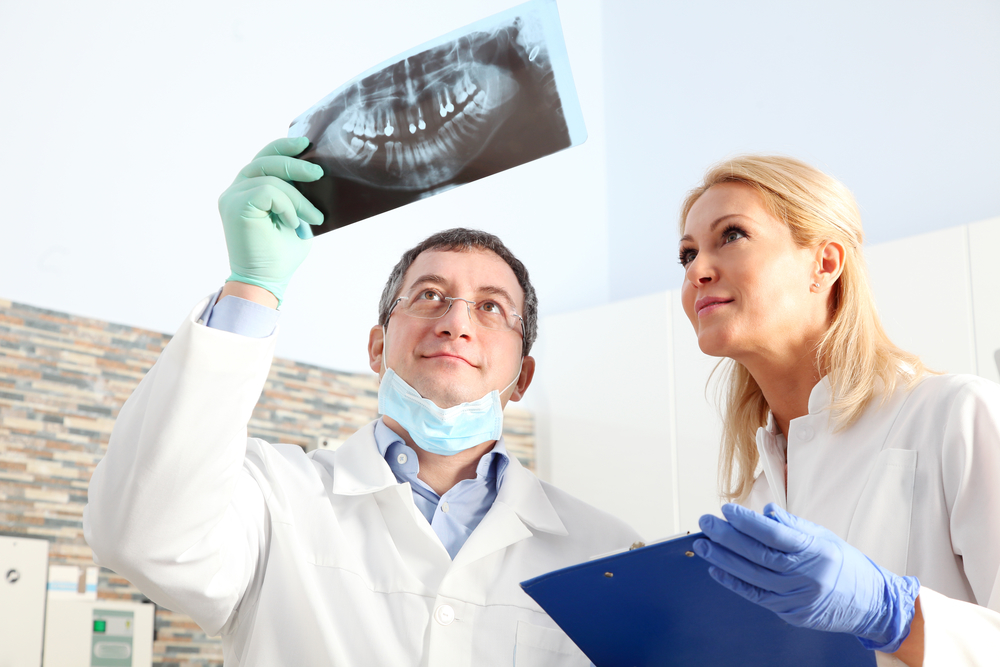Every year, millions of dental implants are placed, and the vast majority — more than 95 percent — are successful. And when an experienced oral surgeon performs the procedure versus a general dentist, the chance of success rises to 98 percent.
If you want your implanted teeth to last a lifetime, however, sticking to a solid oral hygiene routine is essential. Fortunately, taking care of dental implants isn’t all that different from taking care of your natural teeth.

Brush Your Teeth
Twice a day, for at least two minutes — that’s how often dental experts recommend brushing natural teeth, and the advice for implanted teeth is the same. Patients who have difficulty cleaning the areas around the implants can try an interdental brush with smaller bristles.
Floss Every Day
Flossing at least once per day is an important oral hygiene habit for dental implant patients. The gums surrounding implanted teeth have a greater risk of developing periodontal disease, and daily flossing helps prevent the condition. Hand-held flossers or using a water flosser can make the task easier.
Use a Mouth Rinse
A mouth rinse cleans hard-to-reach areas, including the gumline and between the teeth, which helps combat plaque and germs. Daily use of a therapeutic mouthwash reduces the risk of oral health problems that may compromise the integrity of implanted teeth. A nonabrasive, antimicrobial mouth rinse is generally a safe bet, but an oral surgeon can provide specific recommendations.
Consider a Bite Guard
Bruxism, or tooth grinding, can lead to dental implant failure. For patients who grind or clench their teeth during sleep, oral surgeons advise wearing a bite guard or custom-made dental splint at night. Doing so helps mitigate the effects of tooth grinding and gives implanted teeth a greater chance of lasting a lifetime.
Get Routine Cleanings
Routine professional cleanings, performed by a dental hygienist, are beneficial for dental implant patients — even those who maintain sound oral hygiene habits. Hygienists use special equipment that thoroughly removes plaque, tartar and bacteria within the spaces between natural and implanted teeth, which helps prevent implant failure.
Schedule Regular Examinations
After dental implant surgery, frequent professional examinations by an experienced oral surgeon are a must — experts recommend that patients schedule checkups every three to six months.
Regular attention helps catch problems with implanted teeth early, when they’re treatable. Some oral conditions, including peri-implant mucositis and peri-implantitis, don’t always cause symptoms. Without regular examinations, issues can go undetected, and patients can suffer bone or tissue loss — or even implant failure.
Are you thinking about getting dental implants? Or is it time to schedule a professional oral surgeon examination of your implanted teeth? Either way, if you live in the greater east central Indiana area, the professionals at Richmond Oral and Maxillofacial Surgery can provide expert care.
As specialists in tooth replacement and implanted teeth, Dr. Partridge and Dr. Alderman have extensive experience helping patients keep their smiles healthy. For more information on how to take care of dental implants or to schedule a professional consultation, contact Richmond Oral & Maxillofacial Surgery today.



